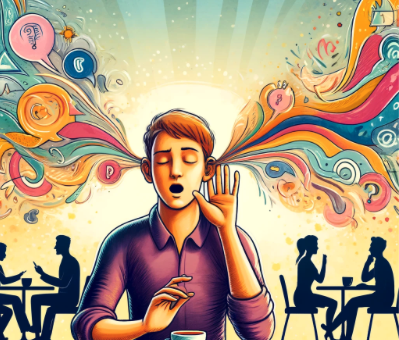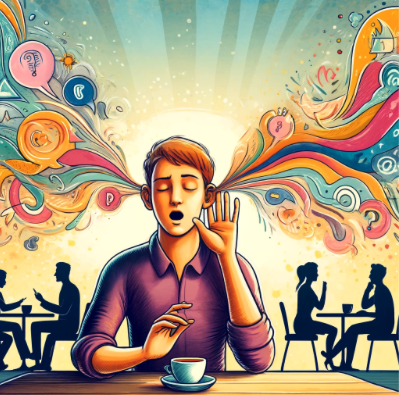
Have you ever experienced a sudden, unexplained tingling in your ears and wondered what it might mean?
This peculiar sensation has been a source of curiosity and speculation for centuries. At the heart of the phenomenon lies an intriguing superstition that suggests when our ears tingle, someone, somewhere, is talking about us.
Historical Glance
The superstition that tingling ears signify distant conversations about oneself is not a product of modern whimsy but has roots that stretch deep into antiquity.

Notably, Pliny the Elder, a Roman author and natural philosopher, referenced this belief in his encyclopedic work, indicating its widespread acceptance in ancient societies.
In literature, this theme finds a voice in the works of William Shakespeare. In “Much Ado About Nothing,” Beatrice exclaims, “What fire is in mine ears!” highlighting the sensation as a sign of being the subject of gossip.
Psychology
The ear tingling superstition is a fascinating example of how human psychology intertwines with physical sensations to create rich narratives.
Scientifically, tingling sensations can result from various causes, ranging from changes in blood pressure to allergic reactions.
However, the leap from a physical sensation to a superstition about social discourse illustrates the human propensity to find meaning and connection in the physical world.
The belief also highlights the ancient concept of a universal connection between individuals—a sort of ethereal network that could convey thoughts and spoken words across distances, making the abstract tangible through physical sensations.

Cultural Variations and Modern Interpretations
Across different cultures, variations of the ear tingling superstition exist, each adding its unique flavor to the interpretation. In some traditions, the specific ear that tingles can indicate the nature of the conversation—whether it is positive or negative—while in others, the time of day during which the tingling occurs may hold significance.
Today, the ear tingling superstition continues to hold a place in popular culture and conversation. It serves as a reminder of the human inclination to seek connections between the physical and the metaphysical, the individual and the collective.
Moreover, it underscores the enduring human fascination with the idea of being spoken about.

